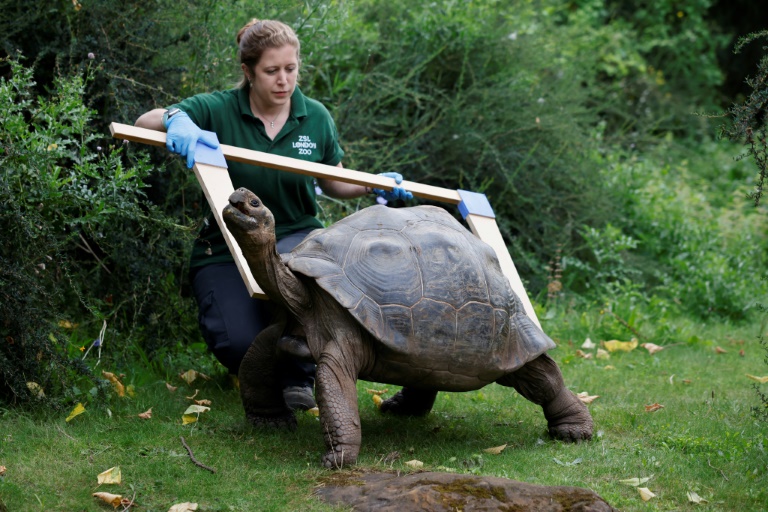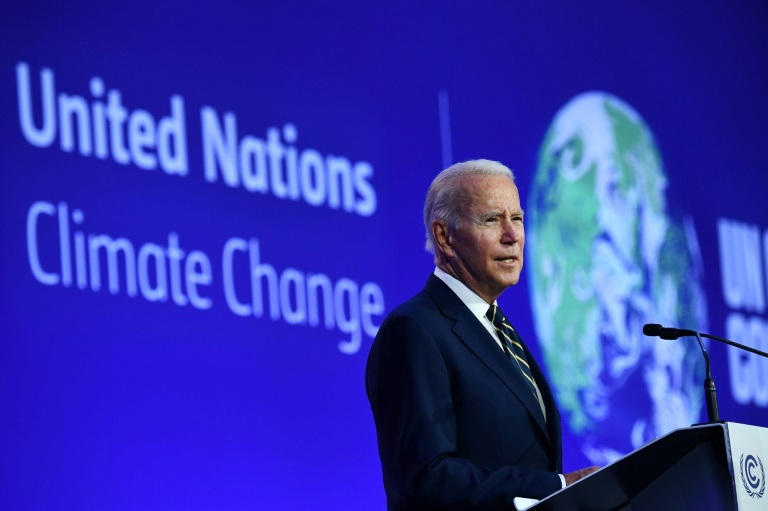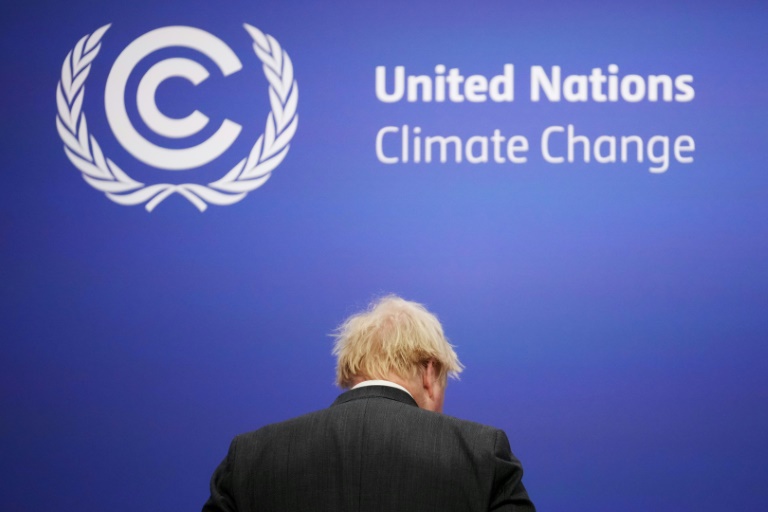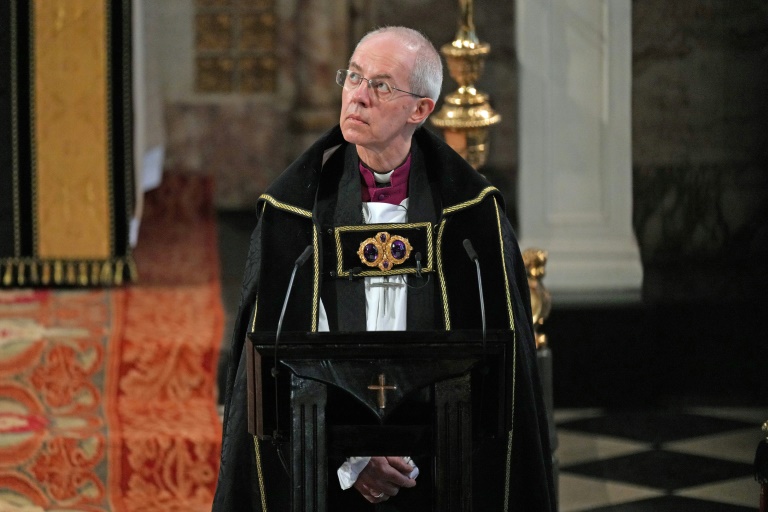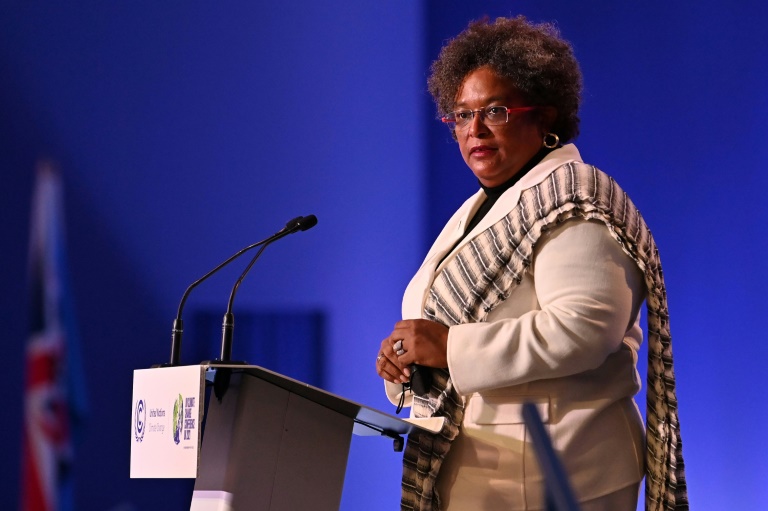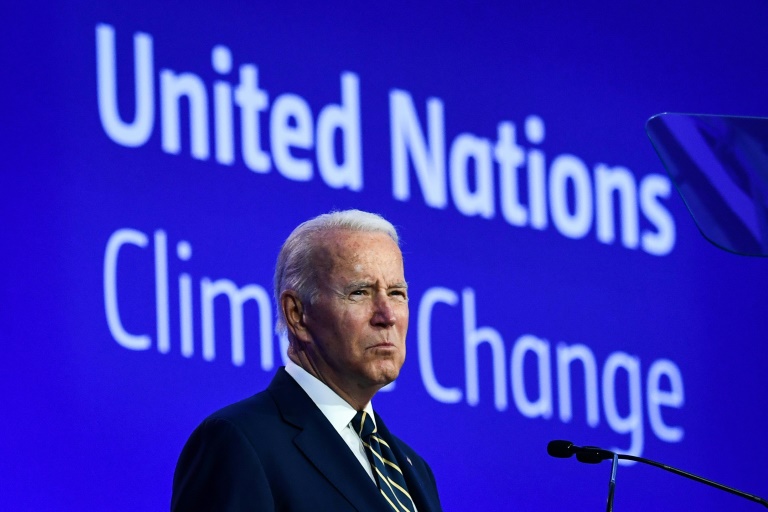World leaders must act to “save humanity”, UN chief Antonio Guterres said Monday as they met for the historic COP26 climate summit that observers said got underway with more talk than action.
More than 120 heads of state and government are gathering in Glasgow for a two-day summit at the start of the UN’s COP26 conference, which organisers say is crucial for charting humanity’s path away from catastrophic global warming.
“It’s one minute to midnight… and we need to act now,” British Prime Minister Boris Johnson said to start proceedings on an at-times chaotic opening day.
However, Monday’s most hotly anticipated address, from India’s Narendra Modi, tempered the hype somewhat: the third largest emitter will only achieve net-zero by 2070.
COP26 is being billed as vital for the continued viability of the Paris Agreement, which countries signed in 2015 by promising to limit global temperature rises to “well below” two degrees Celsius, and to work for a safer 1.5C cap.
With a little over 1C of warming since the Industrial Revolution, Earth is being battered by ever more extreme heatwaves, flooding and tropical storms supercharged by rising seas.
US President Joe Biden, addressing delegates, said that the current age of climate disaster was “an inflection point in world history”.
Pressure is on governments to redouble their emissions-cutting commitments to bring them in line with the Paris goals, and to stump up long-promised cash to help developing nations green their grids and protect themselves against future disasters.
“It’s time to say: enough,” Guterres said.
“Enough of brutalising biodiversity. Enough of killing ourselves with carbon. Enough of burning and drilling and mining our way deeper. We are digging our own graves.”
– ‘We are watching’ –
Thousands of delegates queued around the block to get into the summit on Monday, negotiating airport-style security in the locked-down city centre.
On nearby streets, protesters began lively demonstrations to keep up the pressure.
Swedish activist Greta Thunberg was among dozens of protesters who gathered in a park across the river from the conference centre carrying banners with slogans like “We are watching”.
They then marched across to directly opposite the venue chanting “We are unstoppable, another world is possible!”
Johnson warned of the “uncontainable” public anger if the conference fell flat.
If the leaders “fluff our lines or miss our cue”, generations as-yet unborn “will not forgive us”, the prime minister said.
Biden apologised for his predecessor Donald Trump’s decision to withdraw the US from the Paris deal, noting that one of his first actions on taking office this January had been to re-enter the accord.
Observers however were unimpressed with Monday’s announcements.
“More is needed to turn words into action,” said Thomas Damassa, Oxfam America’s associate director for Climate Change.
“The US must work with other countries to secure a strong outcome that ratchets up emission reductions by major economies.”
– No Xi, Putin –
The G20 including China, India and Western nations committed on Sunday to the Paris goal of limiting global warming to 1.5C.
They also agreed to end funding for new coal plants abroad without carbon capturing technology by the end of 2021.
But the precise pathway to 1.5C was left largely undefined and campaigners expressed disappointment with the group, which collectively emits nearly 80 percent of global carbon emissions.
Preparations for the high-level summit had been dampened by a number of high-profile no-shows.
Both Chinese President Xi Jinping — who has not left his country during the Covid-19 pandemic — and Russia’s Vladimir Putin will not be in Glasgow.
And on Monday, Turkish President Recip Tayyip Erdogan cancelled his appearance for unspecified reasons.
France’s Emmanuel Macron called on the “largest emitters” to redouble their pollution cutting plans during COP26.
“The key over the next 15 days at this COP, is that the largest emitters, whose national strategies do not align with our objective of 1.5C of warming, raise their ambition,” he said.
– Net-zero 2070 –
Most nations have already submitted their renewed emissions cutting plans — known as “nationally determined contributions”, or NDCs — in advance of COP26.
But even these current commitments — if followed — would still lead to a “catastrophic” warming of 2.7 Celsius, says the UN.
China, by far the world’s biggest carbon polluter, has just submitted to the UN its revised climate plan, which repeats a long-standing goal of peaking emissions by 2030.
US-China tensions were simmering Monday after Biden’s national security adviser Jake Sullivan labelled Beijing among the “significant outliers”.
China “will not be represented at leader level at COP26 and… has an obligation to step up to greater ambition as we go forward”, Sullivan added.
India meanwhile has yet to submit a revised NDC, a requirement under the Paris deal.
Modi said that his country would achieve net-zero emissions by 2070, and that 50 percent of its energy would come from renewable sources by 2030.
Another pressing issue is the failure of rich countries to deliver $100 billion annually to help climate-vulnerable nations adapt to climate change.
The goal — meant to be delivered last year — has been postponed to 2023, exacerbating tensions between richer nations, responsible for global warming, and those poorer countries who are the victims of its effects.

